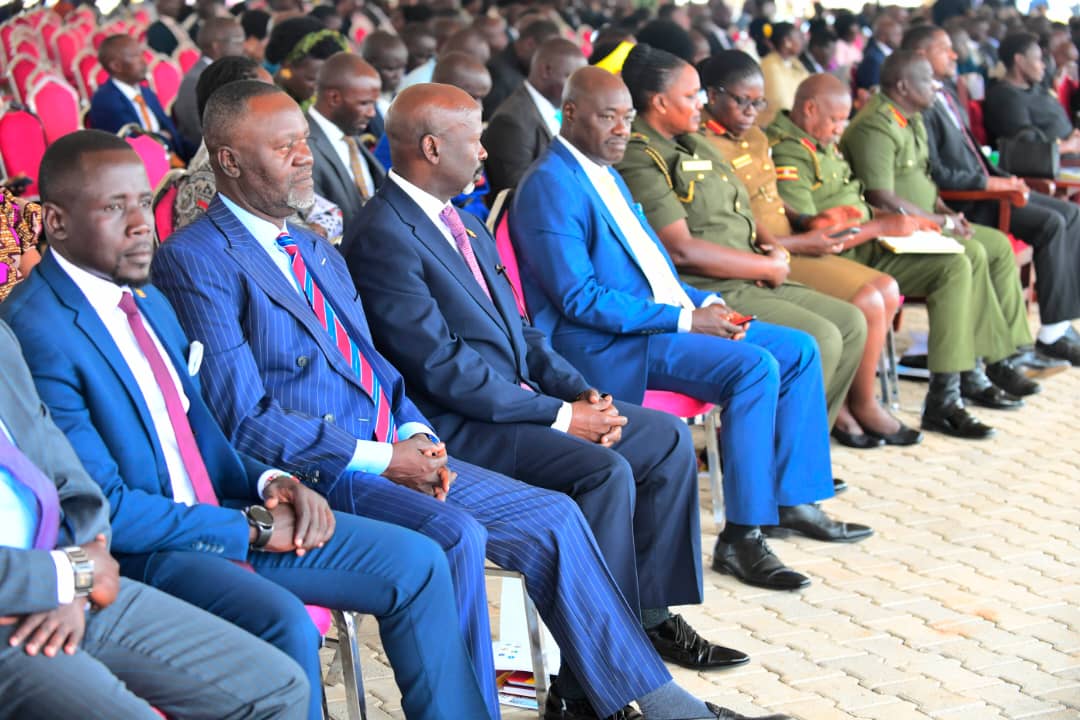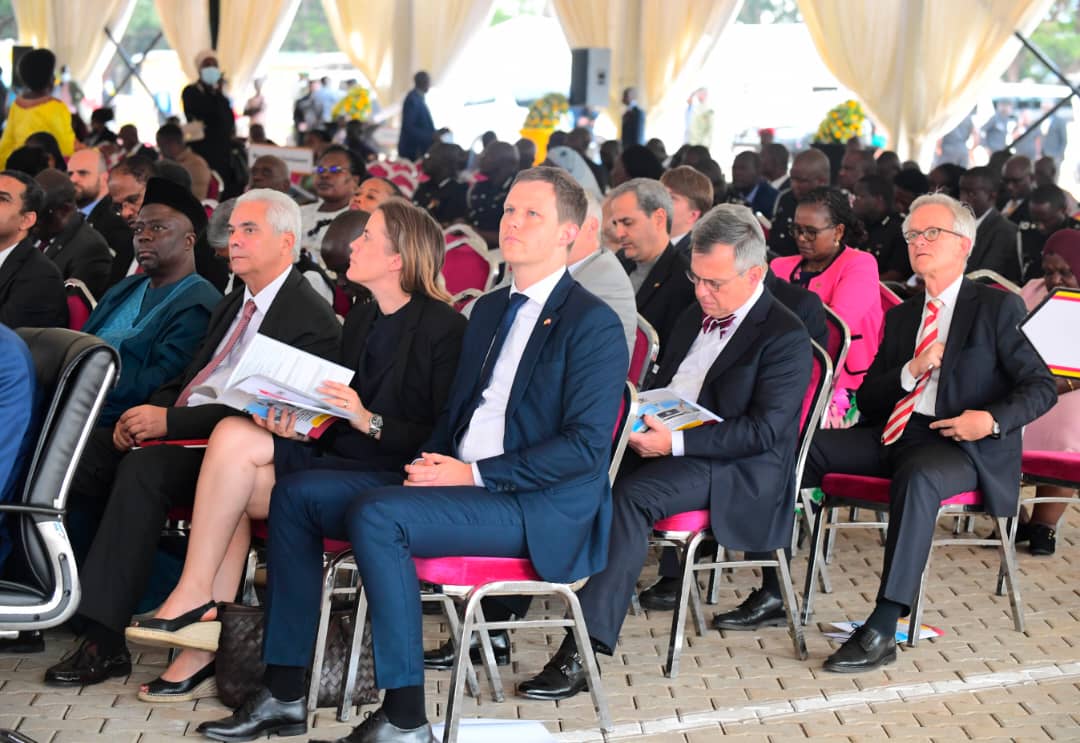President Yoweri Museveni’s State of the Nation Address 2025, highlighting Uganda’s current standing as the 7th fastest-growing economy in Africa at 6.3% growth annually and a projection of 500 billion USD in the near future, underscores a period of significant national ambition. From a public policy and legal perspective, this anticipated acceleration of growth, particularly with the imminent commencement of commercial oil production, presents a pivotal moment. It calls for a strategic and detailed examination of existing conditions, underlying challenges, and the vital policy and legal pathways necessary to ensure this growth is not only robust but also widely inclusive and genuinely sustainable.
The Current Economic Landscape: A Foundation for Future Growth.
Uganda’s economic narrative reflects a journey of evolution. Historically anchored in an agro-based economy, contributing significantly to GDP and employment primarily at the raw commodity level, there’s a clear strategic intent to shift towards more value-added production. This includes the government’s visionary push for the Parish Development Model (PDM), aimed at integrating the subsistence economy into the cash economy. Recent years have also seen concerted efforts towards diversification, with a notable expansion in services, nascent manufacturing capabilities, and increasing Foreign Direct Investment (FDI), all within a largely liberalized economic framework.
The Petroleum Sector is undeniably poised to become a transformative force. Following years of exploration and development, the Final Investment Decision (FID) for major projects, including the East African Crude Oil Pipeline (EACOP) and the refinery, has already stimulated substantial capital inflows. This development is expected to significantly reshape Uganda’s fiscal architecture and trade balance. Parallel to this, the government’s commitment to agro-industrialization is manifest in policies geared towards adding value to key agricultural exports like coffee, milk, and fish, moving beyond mere raw material exports. The substantial potential in tourism and mineral exploitation is also increasingly recognized, with deliberate plans to maximize in-country value. Furthermore, a discernible, though still developing, emphasis on Science, Technology, and Innovation (STI), exemplified by initiatives in local electric vehicle assembly(Kira motors) and pharmaceutical manufacturing, signals a strategic commitment towards nurturing a knowledge-based economy.
From a legal standpoint, Uganda possesses a foundational framework designed to support economic activity. The Petroleum (Exploration, Development and Production) Act, 2013, and the Public Finance Management Act, 2015, provide the regulatory basis for the oil sector and revenue management. Investment codes and the liberalized foreign exchange regime are intended to attract FDI. Regional economic blocs like the East African Community (EAC) and the African Continental Free Trade Area (AfCFTA) offer access to expanded markets, supported by ratified treaties.
Key Considerations: Addressing Challenges for Enhanced Impact
Despite the significant momentum and the existing legal and policy architecture, a comprehensive assessment highlights several areas requiring focused attention and strategic intervention. These are not merely obstacles, but rather critical pathways where targeted improvements can unlock greater potential and ensure more equitable distribution of benefits:

- Fiscal Sustainability and Debt Management: While infrastructure development is undoubtedly crucial for long-term growth, the sustained increase in public debt warrants careful consideration regarding long-term fiscal sustainability. A strategic opportunity lies in enhancing the efficiency of debt utilization and bolstering the transparency of project selection and execution. Critical discourse around how debt-financed projects yield optimal returns and how public procurement processes can be made more robust to mitigate cost overruns is essential. Strengthening the enforcement and oversight mechanisms within existing public finance legal frameworks can significantly improve returns on public investment.
- Enhancing Governance and the Rule of Law: The challenge of corruption remains a significant concern, potentially hindering investor confidence and equitable resource allocation. While anti-corruption legislation and institutions are in place, there is a clear opportunity to strengthen the enforcement mechanisms. Addressing this would involve streamlining legal proceedings and reinforcing deterrence, thereby creating a more predictable and fair operating environment for businesses. Upholding the legal principles of predictability in commercial dealings and the sanctity of contracts is paramount to fostering trust and attracting sustained, high-quality investment.
- Infrastructure Development and Energy Affordability: While investment in infrastructure is ongoing, critical infrastructure deficiencies persist, particularly concerning last-mile connectivity, reliable electricity supply, and digital infrastructure in rural areas. Bridging the gap between ambition and efficient execution in large-scale projects is key to minimizing delays and cost overruns. Furthermore, addressing the cost of critical inputs like electricity is vital for enhancing industrial growth and improving Uganda’s competitiveness in both regional and global markets.
- Human Capital Development and Youth Engagement: Uganda’s youthful population represents a significant demographic dividend. However, the rates of youth unemployment indicate a critical need to fully harness this potential. There is a discernible mismatch between educational outcomes and industry demands, leaving a segment of the workforce unprepared for available skilled jobs. Strategic interventions in the legal and policy environment for vocational training, entrepreneurship support, and access to capital for youth-led enterprises are crucial to addressing this challenge comprehensively.
- Advancing Value Chain Integration and Technological Adoption: In key sectors like agriculture and minerals, a notable gap exists in transitioning beyond raw material extraction to advanced processing and value addition. This often stems from insufficient access to appropriate technology, limited research and development funding, and the need for robust legal frameworks that effectively incentivize domestic processing and discourage illegal raw material exports. While Science, Technology, and Innovation (STI) is prioritized, the practical adoption and commercialization of innovations could be further supported through enhanced incubation and robust intellectual property protection.
- Integrating Environmental and Social Governance (ESG) Considerations: Rapid development, particularly within the oil and gas sector, inherently presents environmental and social considerations. There is an opportunity to strengthen the implementation of environmental impact assessments (EIAs), land acquisition processes, and community engagement under laws such as the National Environment Act, 2019, and the Land Act, 1998. A proactive and robust approach to these areas is essential to mitigate potential conflicts, ensure long-term sustainability, and ensure that growth is equitable and benefits all stakeholders.

Strategic Imperatives: Pathways for Enduring Prosperity
To effectively navigate these considerations and ensure Uganda’s projected growth translates into tangible, equitable, and sustainable prosperity, the following strategic imperatives, grounded in legal and public policy principles, are crucial:
- Strengthening Fiscal Governance and Responsible Resource Management: It is imperative to implement a more robust debt management framework, potentially through an independent body, to ensure future borrowings demonstrably align with national development objectives and deliver optimal returns. Enhanced parliamentary oversight and full transparency of all loan agreements are essential. For the Petroleum Sector, rigorous adherence to the Public Finance Management Act, 2015, and specific petroleum legislation is paramount to ensuring transparent and accountable revenue management, guarding against the ‘resource curse’ through strategic diversification of wealth.
- Bolstering the Rule of Law and Promoting Ethical Governance: A comprehensive and continuous reform of the judicial system is critical to enhance efficiency, reduce case backlogs, and guarantee the predictable application of laws and the effective enforcement of contracts. Empowering anti-corruption bodies (e.g., Inspectorate of Government, State House Anti-Corruption Unit) with adequate resources and operational independence, alongside consistent enforcement of anti-corruption legislation, is fundamental to fostering a fair and predictable business environment.
- Strategic Infrastructure Development and Energy Sector Optimization: Developing a national infrastructure master plan with clear timelines and integrated funding mechanisms is vital, prioritizing energy security and affordable electricity. This involves a strategic review of the Electricity Amendment Act(2022) to attract competitive private sector investment in generation and transmission, coupled with robust oversight for Public-Private Partnerships (PPPs) under the Public Private Partnerships Act, 2015, to ensure transparency and accountability.
- Investing in Human Capital and Fostering Entrepreneurship: An ongoing commitment to reforming the national education curriculum to prioritize STEM fields, vocational skills, and entrepreneurship, directly aligning with industry demands, is crucial. Developing robust legal and policy frameworks to facilitate access to affordable finance and business development services for youth-led enterprises will be key to harnessing Uganda’s demographic dividend effectively.
- Incentivizing Value Addition and Domestic Industrialization: Reviewing and amending relevant investment codes and tax laws to provide targeted incentives for local value addition across agricultural and mineral sectors can significantly boost domestic processing capabilities. Strengthening legal enforcement against the export of unprocessed raw materials where domestic capacity exists or can be developed is an important step towards maximizing national benefit.
- Integrating Sustainability and Equity into Development Strategies: Ensuring rigorous and independent enforcement of Environmental Impact Assessments (EIAs) and Social Impact Assessments (SIAs) under the National Environment Act, 2019, for all major projects is paramount. Developing robust legal mechanisms for fair community benefit-sharing agreements, transparent land acquisition processes under the Land Act, 1998, and accessible grievance redress mechanisms for project-affected persons will ensure growth is inclusive and respects human rights, aligning with international best practices.
Uganda stands at a significant juncture. The projected economic growth reflects immense national potential. However, this moment underscores the critical need for meticulous legal framework and thoughtful policy implementation to effectively navigate the existing challenges. The ultimate success of Uganda’s accelerated growth hinges on its ability to embrace these strategic imperatives through robust governance, predictable legal frameworks, and an unwavering commitment to equity and sustainability for all its citizens. This is a call for a strategic national endeavor built on the bedrock of the rule of law and sound public policy.
Mutesi Mary is a Lawyer and public policy consultant. Email. mutesimary77@gmail.com




